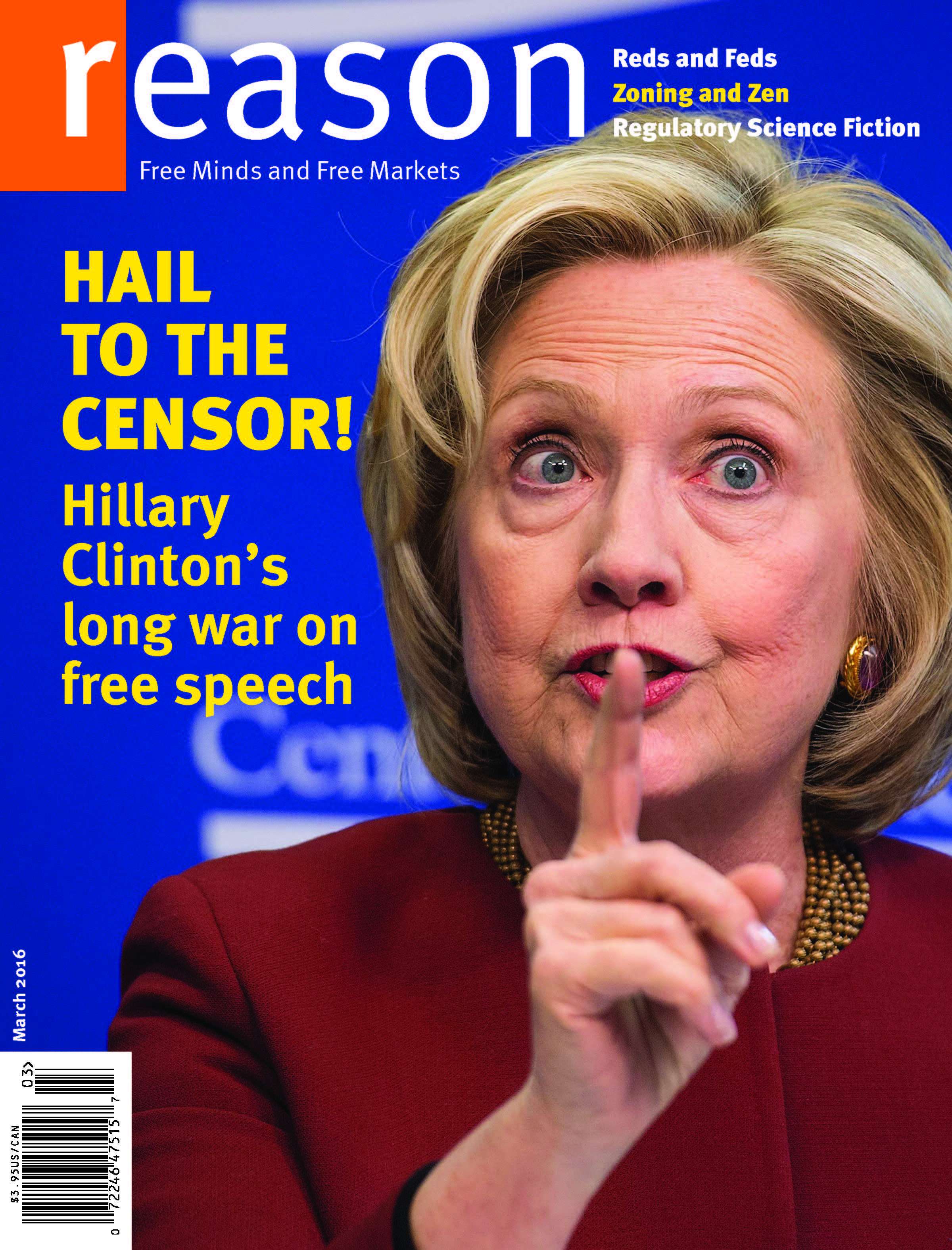Hillary Clinton Is Above Your Little Oversight Laws: 'Nothing I Did Was Wrong'
Democratic frontrunner is 'not willing to say' that running her own private email server 'was an error in judgment'

In last night's Democratic presidential townhall discussion, there was a revealing if incoherent exchange between moderator Chris Cuomo and frontrunner Hillary Clinton about her personal accountability for running her own private email server as secretary of state:
CUOMO: On that issue, the Des Moines Register, as we said earlier, gave you an endorsement. [It did] question your judgment, though, when it came to the email issue. They said, and you know this, but for the audience, in 2008 "when she says"—"when she makes a mistake she should just say so." This weekend they said that's a lesson that you have not learned. Yes, you apologized, but only when you needed to, not when you first could have. Fair criticism?
CLINTON: Well, I think that they're—you know, look, I was delighted to get the Register's endorsement. And it was a very generous one. And yes, I think that's a fair criticism.
You know, I had no intention of doing anything other than having a convenient way of communicating, and it turned out not to be so convenient. So again, we've answered every question and we will continue to do so. But you know maybe being faster, trying to scramble around to find out what all of this means, I probably should have done that quicker.
CUOMO: You're willing to say it was an error in judgment, you should've apologized…
CLINTON: No. I'm not willing to say it was an error in judgment because what—nothing that I did was wrong. It was not—it was not in any way prohibited. And so…
CUOMO: Not apologizing sooner I mean.
CLINTON: Well, apologizing sooner, as soon as you can. But part of the problem—and I would just say this as not an excuse but just as an explanation—when you're facing something like that, you've got to get the facts. And it takes time to get the facts. And so when I said, "Hey, take all my emails, make them public," that had never been done before, ever, by anybody. And so we've been sorting our way through this because it is kind of a unique situation.
I'm happy people are looking at the emails. Some of them are you know, frankly a little embarrassing. You know, you find out that sometimes I'm not the best on technology and things like that. But look, I think it's great, let people sort them through. And as we have seen, there is a lot of—you know, a lot of interest. But it's something that took time to get done.

The Federal Records Act and Freedom of Information Act (FOIA), which together require federal employees to retain and make available to the public documents generated as part of their work, were not designed to be advisory laws, open to the interpretative discretion of the officials they constrain. They were adopted to give the people—me, you, the drunk at the bar (but I repeat myself)—access to evidence of what is being done in our name and on our dime. As Dan Metcalfe, the longtime former founding director of Justice Department's Office of Information and Privacy, and a professed potential Clinton voter, explained in Politico last year,
[T]he starting point for handling a FOIA request is the search that an agency must conduct for all records responsive to that request's particular specifications. So any FOIA request that requires an agency first to locate responsive email messages sent to or from that agency's head, for instance, is necessarily dependent on those records being locatable in the first place. And an agency simply cannot do that properly for any emails (let alone all such emails) that have been created, and are maintained, entirely beyond the agency's reach. Or, as it sometimes is said somewhat cynically in the FOIA community, "You can't disclose what you can't find."
In this case, which is truly unprecedented, no matter what Secretary Clinton would have one believe, she managed successfully to insulate her official emails, categorically, from the FOIA, both during her tenure at State and long after her departure from it—perhaps forever.
Forget for the moment all the outstanding legal issues involved here, and focus solely on the morality of it: If making records publicly available and searchable is right, what Hillary Clinton did was unequivocally wrong. The State Department during her tenure produced "inaccurate and incomplete" responses to public records requests, partly as a result of the secretary's unusual email system, according to an Inspector General's report this month. I think it's safe to conclude that when your judgment produces errors, you are guilty of an "error in judgment."
Clinton's incoherent responses here—why did she apologize, and how can the Register's criticism be "fair," if nothing she did was "wrong"?—are also telling. As a quarter-century of Clintonian crisis P.R. has demonstrated, she will say and do whatever she feels is necessary in the micro-moment—including flat-out lying—in an attempt to make a scandal go away. The tactic is self-evidently effective enough as power politics, but it's also worth observing that this is only the second truly contested election Hillary Clinton has ever competed in, and the first one didn't exactly go as planned.


Show Comments (194)